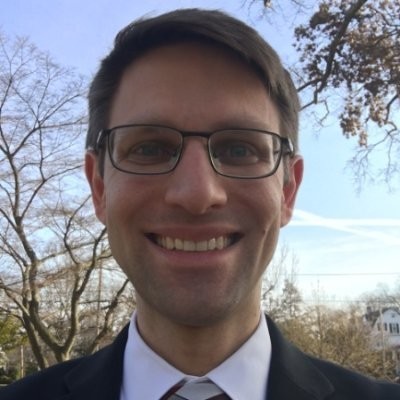
Medicaid Who’s Who: Patrick Tigue – Medicaid Program Director at State of Rhode Island Executive Office of Health and Human Services
1. Which segment of the industry are you currently involved?
A: Throughout my career, I have consistently been involved in one way or another with state health policy. At the state level, the nexus of strategic health policy, health insurance operations management, and health care system communications has always fascinated me.
2. How many years have you been in the Medicaid industry?
A: I have been in my current role for just over one year but have been involved in the health care industry for about twelve and a half years—with much of that time being focused on Medicaid.
3. What is your focus/passion? (Industry related or not)
A: The through line of my career has been a focus on ensuring that those who are vulnerable for a range of reasons receive the health care they need to lead healthy, productive lives. My particular passion is to bring to bear the smartest strategies possible to effectively and efficiently accomplish this goal.
4. What is the top item on your “bucket list?”
A: I am a huge Star Wars fan so when I heard that plans had been announced for an immersive Star Wars-inspired resort to be built at Walt Disney World Resort, staying there immediately become my top item.
5. What do you enjoy doing most with your personal time?
A: Spending time with my wife and daughter is far and away what I enjoy the most. My daughter is still fairly young and my wife and I being able to watch her become herself and discover the world is such a joy. It keeps everything else in perspective.
6. Who is your favorite historical figure and why?
A: I deeply admire Dietrich Bonhoeffer, the German pastor and theologian who died in 1945. Given the time and place in which he lived, his choices and experiences were far more extreme than what most of us face in our own lives but his example of speaking up for the vulnerable is worth aspiring to for all of us.
7. What is your favorite junk food?
A: I am a native New Englander so it is rare for me to turn down ice cream—especially during summers here. Cookies and cream has always been my favorite flavor.
8. Of what accomplishment are you most proud?
A: When I assumed my current position as Medicaid Program Director here in Rhode Island, it immediately became clear to me that we needed to improve our organizational structure to allow us to successfully execute against our guiding principles now and in the future which include:
- Pay for value, not for volume
- Coordinate physical, behavioral, and long-term health care
- Rebalance the delivery system away from high-cost settings
- Promote efficiency, transparency, and flexibility
Completing a reorganization to move us forward on this front in partnership with my senior management team is my proudest accomplishment because it serves as a foundation for all of the work we will do going forward and allows our entire team to receive the direction and support they need to succeed on behalf of the Rhode Islanders we serve.
9. For what one thing do you wish you could get a mulligan?
A: In a prior management role, I made a hire for my team on the basis of a candidate’s knowledge and learned the lesson that hiring for knowledge alone instead of a combination of character, fit, and skills will not lead to a successful outcome. Having made the right hire at the outset would have led to the best outcome in the quickest way possible. In my experience, it has been consistently true that if you add quality individuals to your team, outcomes mostly take care of themselves. This is of special importance in the public sector where performance management options are generally more constrained.
10. What are the top 1-3 issues that you think will be important in Medicaid during the next 6 months?
A: From my perspective, the top issue to watch in the coming months is how engagement between CMS and state Medicaid agencies around Section 1115 demonstration projects continues to evolve. Both the boundaries of state flexibility and the expectations of how states evaluate demonstration projects are shifting and how specifically this shifting plays out will shape the program for years to come.
